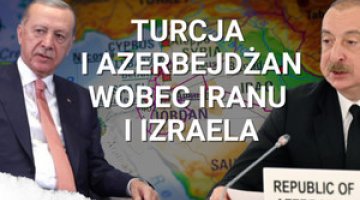Eurovision: Azerbaijan’s failure to promote itself
The organisation of the Eurovision Song Contest, the final of which was held on 26 May in Baku, was of huge significance for national prestige to the government in Baku. This was the first event in Azerbaijan to attract such global media attention since the collapse of the Soviet Union. Preparations for the Eurovision Song Contest were given top priority by the government, including the construction of a special Crystal Hall (which required illegal expropriations to be carried out); this was also the most expensive edition of the Eurovision contest in history. At the same time, the small opposition and the independent media stepped up their efforts to promote the regime’s human rights and legal violations, including the disclosure of a corruption scandal concerning the construction of the Crystal Hall, which the president’s family is involved in. However, the symbolic demonstrations by the opposition were violently broken up by the authorities. These matters, rather than Azerbaijan’s success in organising the contest, attracted the greatest interest from the foreign media (including the New York Times, the Guardian, al-Jazeera, the AFP and the AP). The government was also severely criticised by the European Parliament in its resolution of 24 May.
-
The government in Baku was planning to use Azerbaijan's hosting of the Eurovision Song Contest to promote the image of the country as a modern, rich, and (because of its wealth) important economic partner. It heavily promoted the image of Baku city as ‘the Dubai of the South Caucasus’. Nevertheless, when writing about Azerbaijan in the context of Eurovision, most of the world's media presented the country as an authoritarian state which constantly violates human rights. This has meant a fiasco in terms of prestige and image for the ruling elite – instead of the expected praise for the economic and organisational success of hosting Eurovision, Azerbaijan has brought an avalanche of criticism upon itself from the media. This also resulted in a critical resolution on Azerbaijan being passed by the European Parliament two days before the final competition.
-
The trend towards criticising Azerbaijan, as well as the European Union for having been inactive in raising human rights issues in its relations with Baku, may continue over the next few months (even if only as an expression of solidarity between Western reporters and their fellows in Baku). This will probably increase EU pressure on Azerbaijan regarding human rights and democracy. However, this approach may in turn provoke frustration from Baku (which treats Western criticism as interference in its internal affairs), which may aggravate internal repression. The activities of Azerbaijan’s government have also confirmed that Azerbaijan is not interested in integration with the EU, but only in cooperation in the energy sector.
- Actively raising human rights issues will also worsen the atmosphere of talks between Baku and the West, including discussions on implementing the Eastern Partnership and the ENP. In practice, the common interests of Azerbaijan and the West will remain limited to energy cooperation, and this will remain the priority in their relations.




